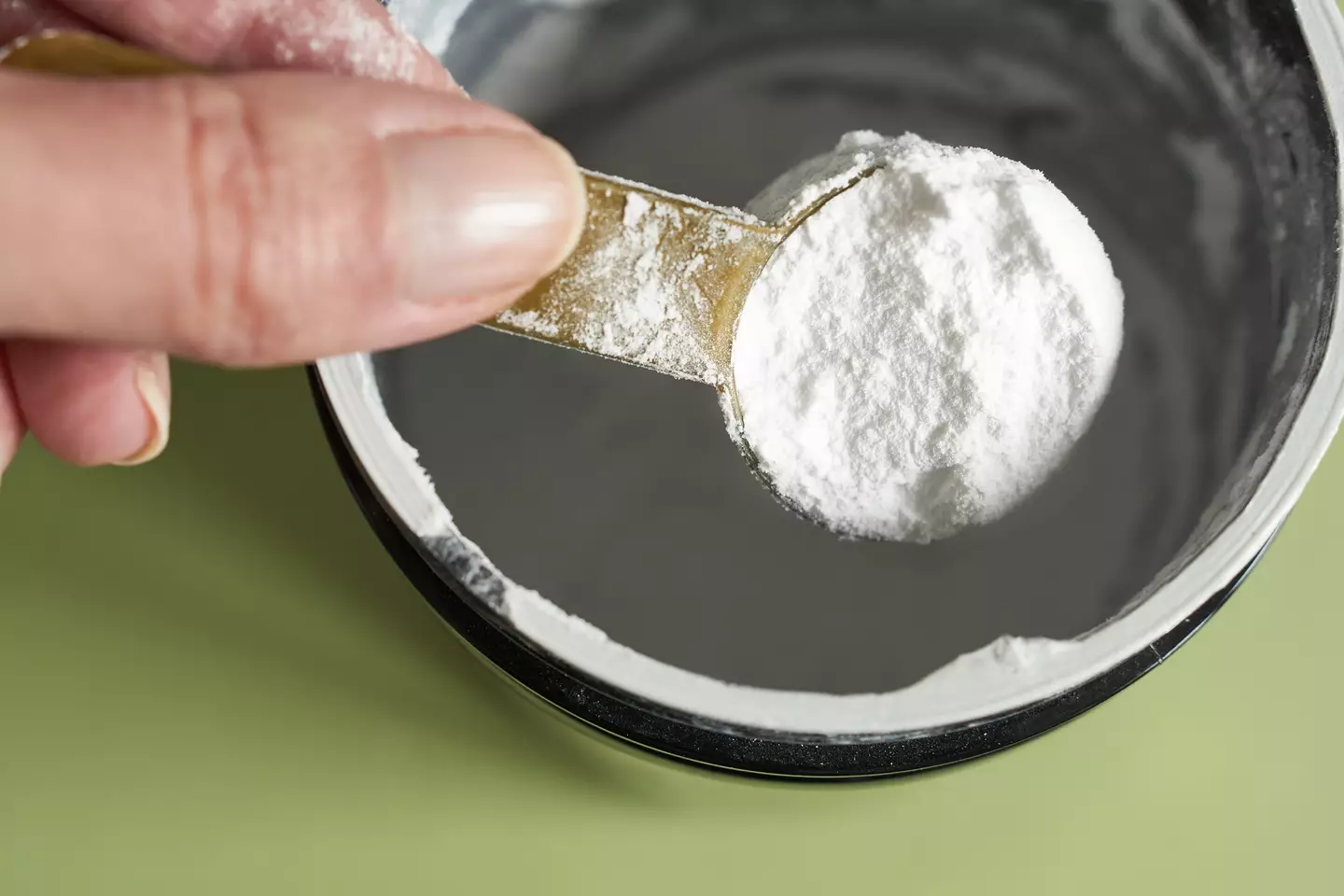
Headaches are among the most common health complaints, with causes ranging from lack of sleep and stress to eye strain and even diet. While these factors are well known, experts now suggest there may be another explanation that is often overlooked, and it could be linked to something many people take to enhance their performance in the gym.
This substance, in particular, has become one of the most widely used and extensively researched supplements for strength, recovery, and muscle growth. It is considered safe for most healthy adults, yet some users report unpleasant side effects, including headaches.
According to specialists, this reaction is less about the supplement itself and more about how the body responds to it. One such specialist has helped clarify that fact.

Advert
The supplement being talked about is the well-known creatine, which has been widely used on the physical fitness scene since the 1990s. Cited in the report by Woman’s Health, Dr Stuart Hesketh, senior lecturer in sports medicine at the University of Lancashire, explained: “Creatine works, in part, by drawing water into muscle cells, which is one reason it supports performance.
“For some people, this shift in fluid balance can feel a little like dehydration and trigger headaches, especially if they aren't drinking enough water.”
The risk is greater during a so-called loading phase, when higher doses are consumed over a short period. However, Hesketh essentially notes that the majority of people will be able to withstand daily amounts at lower quantities without any problems.
Hannah Belsham, health and wellbeing physiologist at Nuffield Health, emphasised that creatine itself does not cause dehydration, saying that ‘creatine doesn’t directly cause dehydration, but rather, if you don’t increase your fluid intake, you might feel mild dehydration symptoms, such as headaches'.
She added: “Research shows that creatine isn’t harmful to hydration status. Reviews from the International Society of Sports Nutrition conclude there’s no evidence linking creatine with dehydration or cramping in healthy adults.”
Despite this reassurance, ensuring adequate hydration is essential. Hesketh said: “It is sensible to pay attention to hydration when you are taking creatine. This is largely because it increases the amount of water stored in your muscles so your body's overall fluid needs may be slightly higher,” says Hesketh. Monitoring your urine colour, aiming for pale yellow, is an effective guide for doing this.

Belsham also advises paying attention to electrolytes such as sodium, potassium, magnesium and calcium, which regulate fluid balance and muscle function. These can be supported through foods like bananas, spinach, nuts, dairy and, in some cases, balanced sports drinks.
For those experiencing headaches, splitting the daily dose into smaller servings may reduce discomfort. Hesketh highlights that ‘a steady daily intake of around 3–5g, or ~0.03g per kilogram of body weight is usually enough to get the benefits without the higher loading amounts’.
If symptoms persist, both experts agree that stopping supplementation and consulting a GP is the most sensible course of action - always the best shout if you ever have any health concerns, however small.
